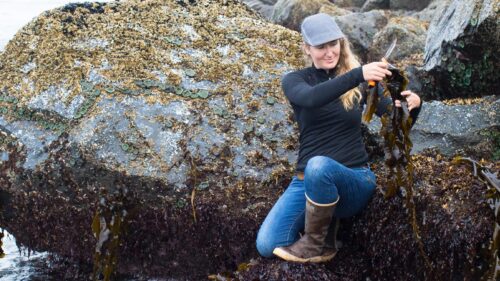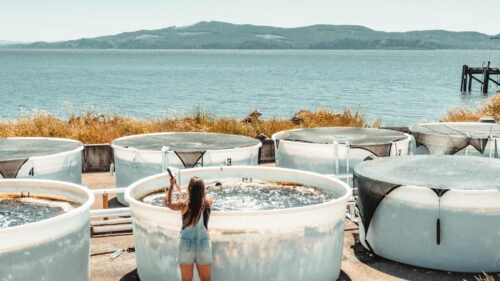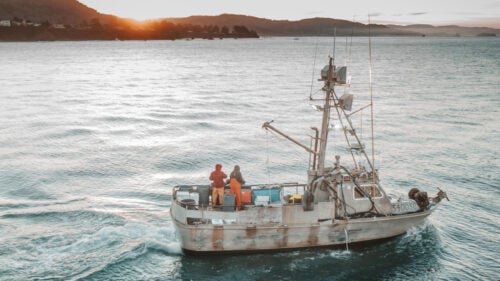Each February, fleets of Oregon restaurants and bars unite with seaweed advocates to share the flavors of the Oregon Coast. Visitors and residents can experience the Winter Waters series as they partner with local chefs, artists and venues to promote and protect one of Oregon’s most delicious resources. Locally farmed seaweed brings inspiration and nutrition to each event, while the annual series brings conservation, collaboration and cuisine from Oregon’s oceans inland. Here’s how you can learn about seaweed at its most edible and educational.
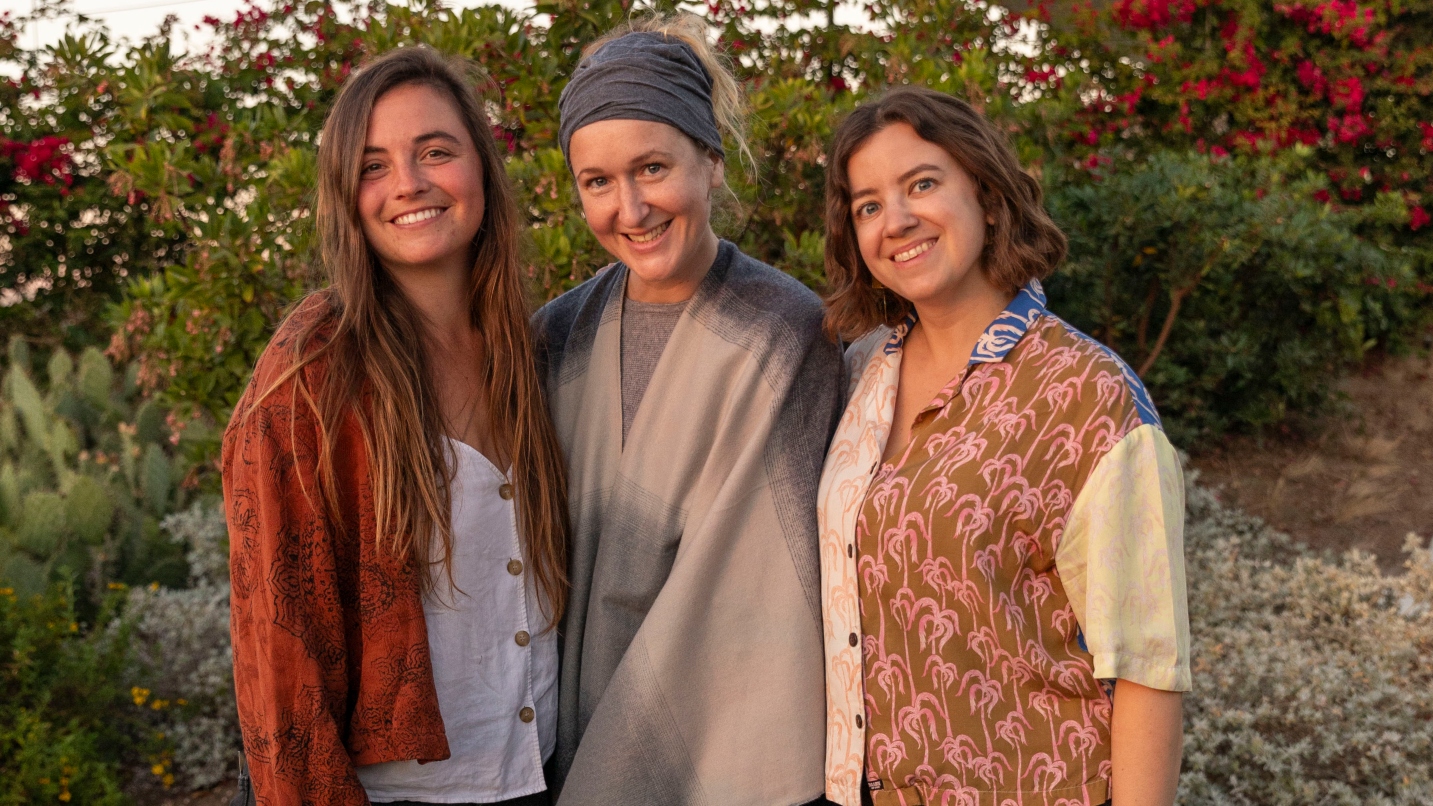
Conservation: How to Save Oregon’s Kelp Forests
Oregon’s forests full of firs, oaks and pines are a state trademark. The forests feed families and house exploration. Under the blue waves of the Oregon Coast, another forest does the same. Just on the other side of Oregon’s sandy beaches are hundreds of acres of kelp. These underwater forests are diverse ecosystems that protect fish from storms and predators. Juvenile salmon depend on kelp forests and use them as natural nurseries before they are strong enough to travel back upstream. These swaths of seaweed protect countless organisms. Now, they’re in danger, and the team behind Winter Waters aims to help.
Rising sea temperatures and a boom in the population of purple sea urchins, which eat kelp, threaten Oregon’s kelp forests. Winter Waters uses their annual seaweed-centric seafood series to combat the decline by bringing the issue to the public’s attention (and tables).
Winter Waters was formed when seaweed advocates Alanna Kieffer and Rachelle Hacmac connected with Oregon Coast food systems value chain coordinator Kristen Penner. Their collaborative project culminates in an annual series of events to increase public awareness. Winter Waters aims to protect seaweed and promote locally sourced ingredients with the help of Oregon’s artists, makers and chefs.
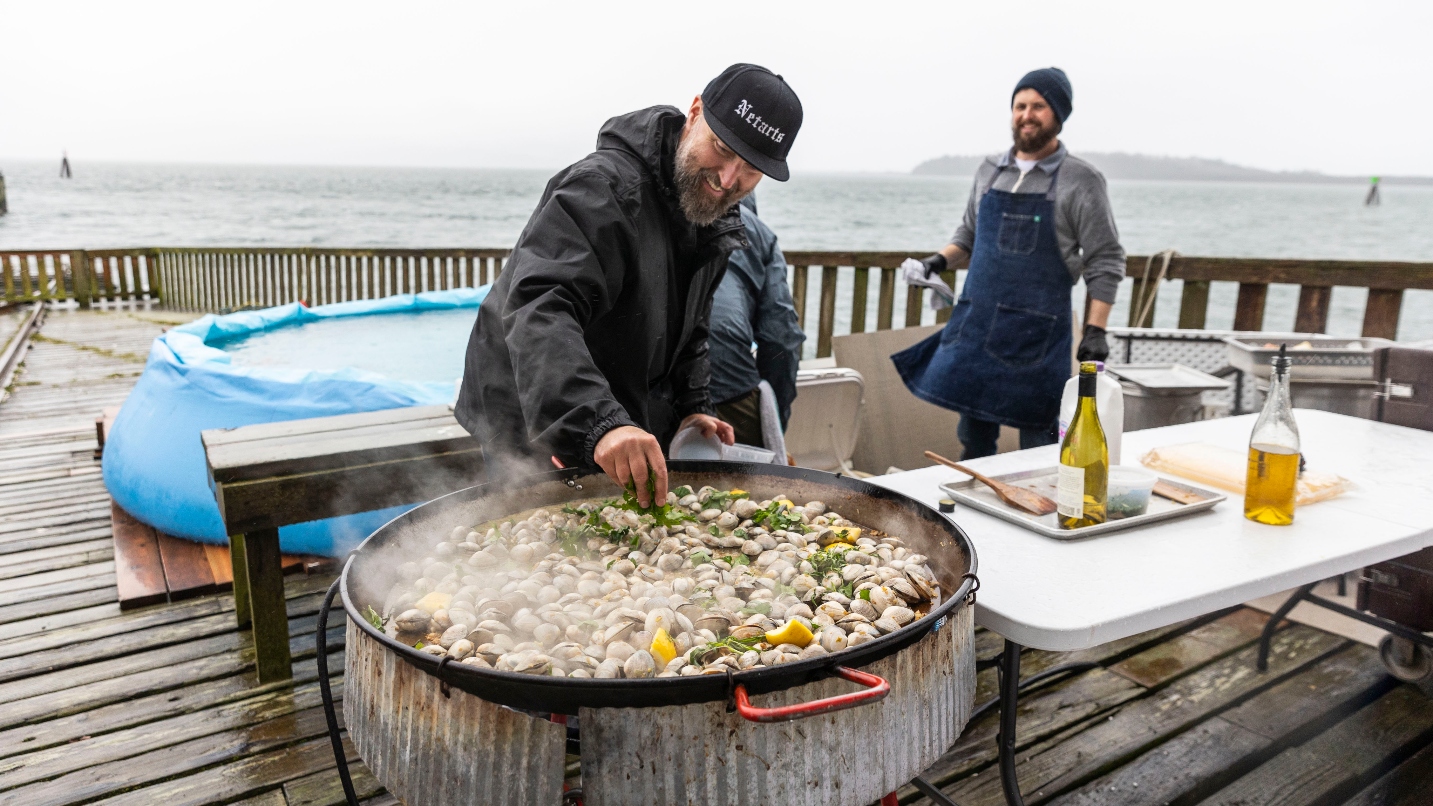
Collaboration: How to Join in the Fun at an Event
In tandem with local creatives, Winter Waters hosts events that present seaweed in fresh mediums and meals. Participants can experience everything from fine dining in Portland to seaweed beer and hands-on art classes. The team behind Winter Waters partners with many of Oregon’s talented creatives and offers new connections every year. Each collaboration brings their own way to use, eat and understand seaweed.
Winter Waters is a multimedia experience. Before sitting down to enjoy a seaweed-infused feast, visitors can watch films, interview experts and tour fisheries. Kieffer, Hacmac and Penner have developed a network of knowledgeable naturalists passionate about our oceans and sharing their interests with visitors.
At one event in 2025, for example, the team partnered with the Oregon Albacore Commission to host a five-course tasting meal at Takibi in Portland. The commission chair hosted a game of trivia as chefs prepared rice bowls, salads and sake inspired by tuna and seaweed.
Others include a Hope in the Water docu-series screening in Cannon Beach, followed by a panel discussion with industry experts, plus a weekend of events in Port Orford and elsewhere along the South Coast, including a free community event and fisheries and aquaculture tour, so seafood enthusiasts can learn about the Port or Port Orford’s dolly dock, plus the Oregon Seaweed pacific dulse farm and nearby urchin ranch.
Not all events are on the Coast. In Portland, a Blue Foods Forum in mid-February features three days of seafood-centric programming for producers, processors, innovators and eaters — including an oyster social, ocean art workshop and speakeasy with live urchin touch tanks and seaweed-forward bites and sips.
Check the current lineup for this year’s events, and book early since many sell out.
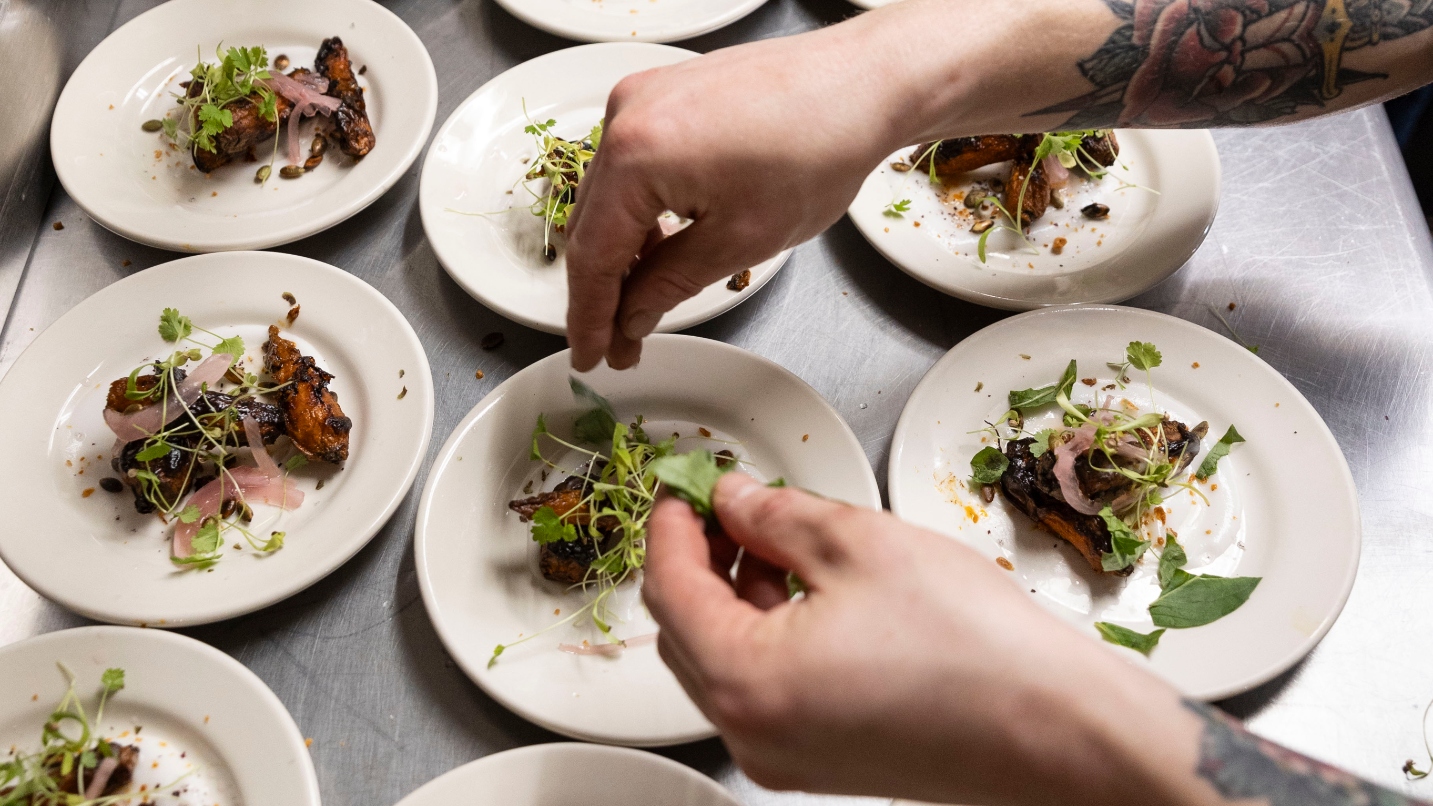
Cuisine: How to Taste this Superfood
Food is at the core of Winter Waters. The program serves dishes of seaweed and seafood to diners across the state. Rather than farming Oregon’s wild kelp forests, the team works with Oregon Seaweed’s sustainable farms in Garibaldi and Bandon to offer cultivated dulse seaweed to participating restaurants. Freshly farmed dulse is highly nutritional in proteins, vitamins and minerals; carbon-negative (needing only sea water and sunshine to grow) and considered to one of the most earth-friendly vegetables in the world.
Guests can order specials from local eateries or experience multi-course meals at some of Oregon’s finest dining destinations. Wherever you end up, you’ll find seaweed at the center of each serving. Steamed, fried or crumbled on top, partnering chefs will show new ways to use this versatile, local ingredient.
Top Chef finalist Shota Nakajima, who recently attended the Winter Waters dinner at Takibi, says the program is valuable because it raises awareness for “incredible sustainable products that are healthy and delicious.” As a chef, Nakajima loves letting his ingredients lead his creative process, and that’s what Winter Waters partners do with every dish.
For some, seaweed is seen mainly in the ocean or maybe on the occasional sushi date. This event brings seaweed to the forefront by connecting it with restaurants and venues you may already know. Each year they create a lineup with something for everyone, whether you’re ready to dive into the deep end with albacore-flavored ice cream or stay in the shallows with seaweed samples.
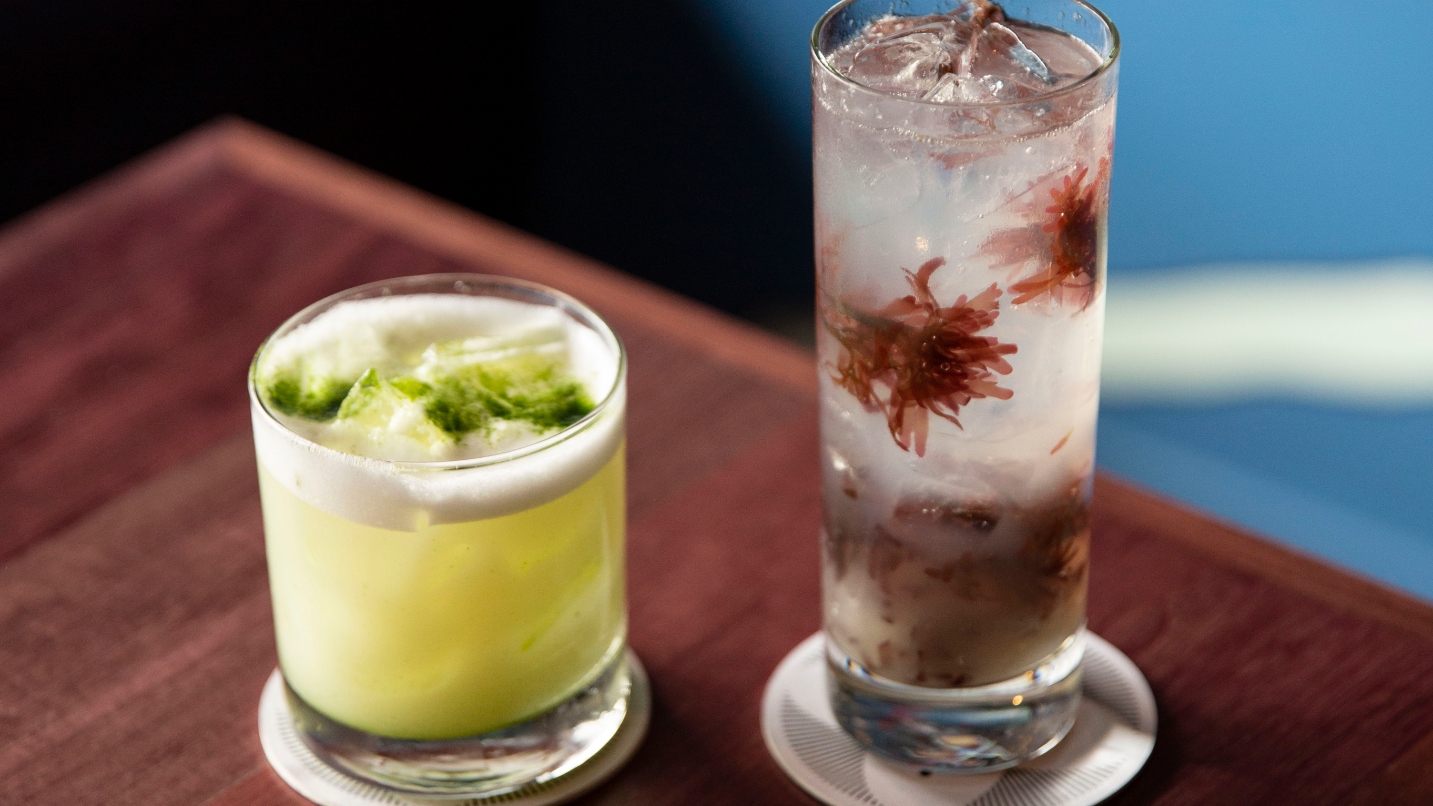
Contribute: How to Support the Seaweed Revolution
Many Winter Waters events are low-cost or offer a sliding pay scale. Several events are free to attend and provide ways to support the cause. If you cannot join, there are many ways to help the kelp.
One alternative is to donate to organizations like the Oregon Kelp Alliance. This nonprofit is the beneficiary of Winter Waters, which develops and supports collaborative projects to better understand and protect kelp. This multi-sector partnership works to preserve wild Oregon kelp forests.
Visitors can also seek locally sourced seaweed and seafood at home or while traveling. Many Oregon restaurants partner with local fishermen and farmers to offer locally sourced ingredients, and feature seaweed-focused menu specials during the month of February. You can also support local communities by visiting the stops along Oregon’s Food Trails.
Finally, it never hurts to spread the word. Awareness helps protect seaweed and promotes the organizations committed to saving it. By participating, investigating or sharing, you will help ensure that Oregon’s seaweed stays safe and sustainable.
